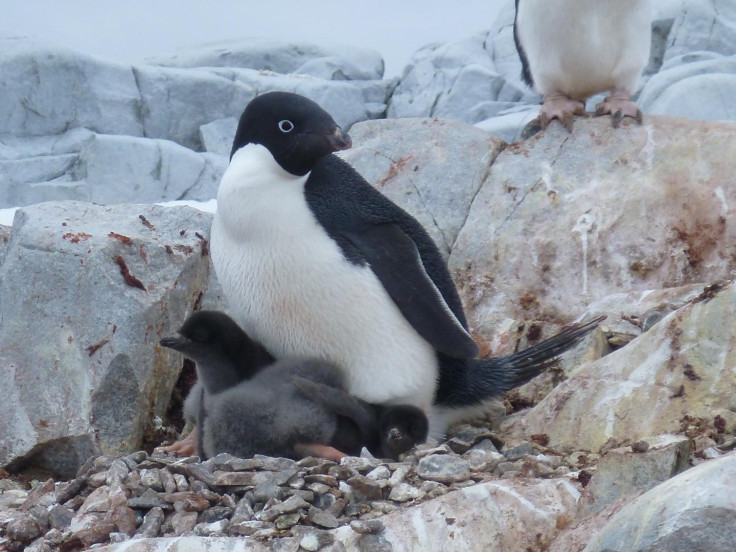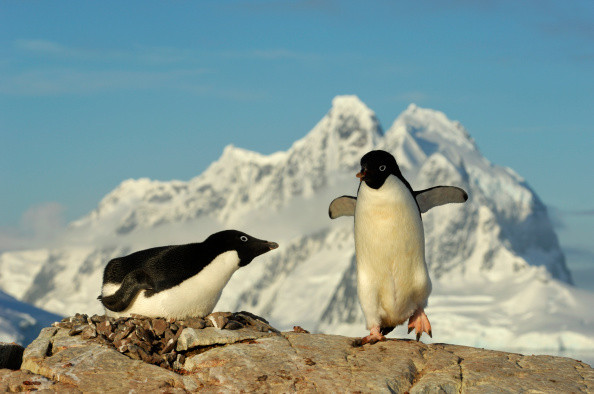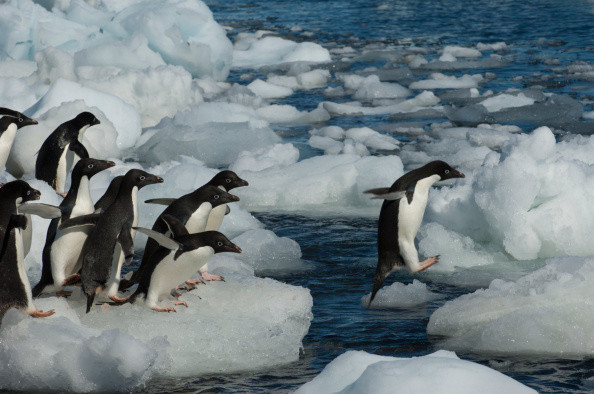Antarctica penguin colonies face stark decline by the end of century due to global warming
Penguin colonies could drop 60% by the end of the century.

Antartica Adélie penguin populations could suffer a serious decline by the end of the century due to global warming, scientists have warned. Warm sea surface in particular appears detrimental to the survival of the species, as it can impact the quantity and quality of food available to them.
Previous studies have tried to retrace the effects of climate change on Antarctic Adélie penguin colonies by tracking the animals and their habitats. This latest study, published in Scientific Reports, uses satellite data and global climate model projections to understand current and future population trends on a continental scale.
Adélie penguins breed around the entire Antarctic continent, using rocky nesting habitats to shelter their eggs. They have been present in this part of the world for up to 45,000 years.
Geological records establish that these penguins do not fare well during periods of very cold, glacial expansion and that some form of warming may be beneficial.
However, the new study suggests that temperatures have reached unsustainable levels in some parts of Antarctica and now represent the biggest climate threat for penguins.

Prediction of future climate
The study is based on data from actual ground count of penguins, as well as high-resolution satellite imagery which pinpoint the animals' exact breeding locations. The scientists, from the University of Delaware, also used data on sea surface temperature, sea ice and bare rock locations, and examined the number of years from 1981-2010 with unusual climate during the Adélie penguin chick-rearing period.
"When we combined this data with satellite information and future climate projections on sea surface temperature and sea ice, we can look at past and future changes in Adélie penguin habitat suitability," Cimino explains.
She and her team then made predictions about Adélie penguin habitat suitability from 2011-2099. They revealed a pattern of asymmetric global warming in Antarctica, with cooling in parts of the continent but warming along the West Antarctic Peninsula.
Due to warming in this region, they project that approximately 30% of current Adélie colonies may be in decline by 2060 and up to 60% will be losing individuals by 2099 because of a loss of suitable habitat to breed. Warming could indeed create unprecedented rain, or prematurely melt snowfall, creating puddles on the ground which may kill off the eggs.

The researchers have also found out that warm sea surface temperature is another particularly detrimental climatic factor for penguins, significantly degrading habitat suitability. Warmer sea temperature may reduce the quality and availability of food for penguins – krill and fish for example are in decline, significantly disrupting the food chain which penguins rely on.
On a positive note, some parts of Antarctica – such as the Ross sea region – are less affected by global warming than the West Antarctic Peninsula and could provide a refuge for penguins. A southward contraction in the range of Adélie penguins is thus expected over the next century.
© Copyright IBTimes 2025. All rights reserved.






















